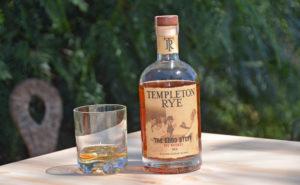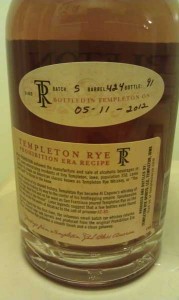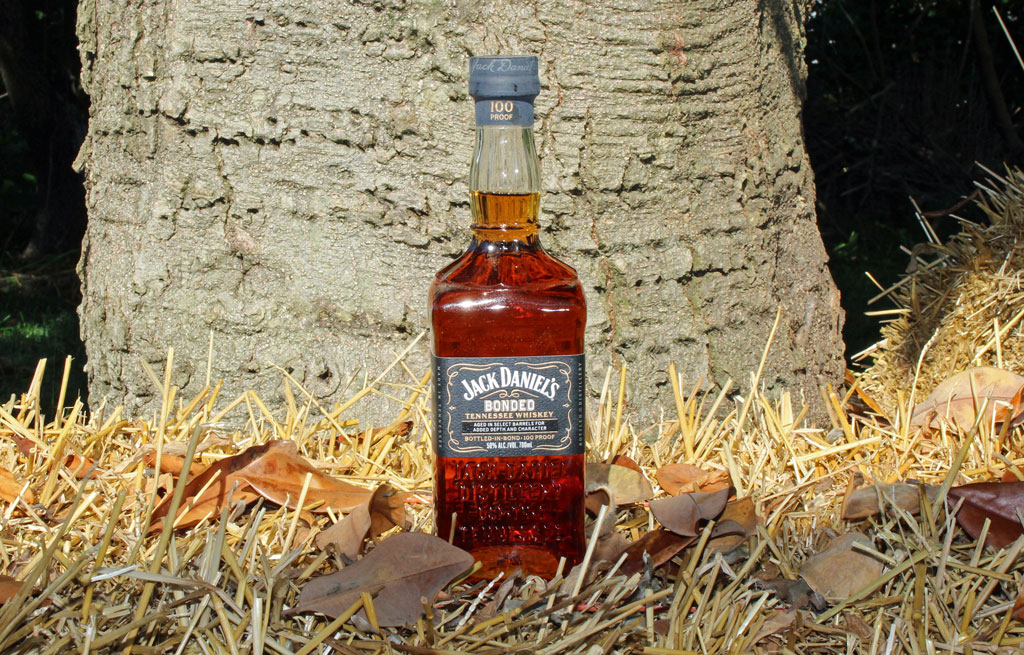Templeton Rye Comes Clean. Again.
By Richard Thomas

(Credit: Richard Thomas)
Following a spate of high profile criticism in The Daily Beast and The Des Moines Register, Iowa whiskey bottler Templeton Rye promised to come clean and cease labeling and marketing practices that many regarded as deceptive. Now they have gone one step further by not only promising to come into compliance with the letter of the law, but revealing information of the kind usually kept secret in the wider whiskey industry.
In a September 12 interview with Whisky Cast, Templeton Rye chiefs Scott Bush and Keith Kerkhoff told what is presumably the whole story behind the development of Templeton Rye. In so doing, they revealed that they hired Clarendon Flavor Engineering to develop flavorings that would bring their whiskey, supplied by the MGP industrial distillery in Lawrenceburg, Indiana, more into line with the flavor profile of the authentic, bootlegger-era Templeton rye recipe.
Under Federal law, whiskey-makers are allowed to adulterate products bearing the simple title “whiskey” with certain additives and not disclose it, so long as the additives add up to less than 2.5% of the total. The undisclosed use of additives will come as a surprise to even many whiskey aficionados, despite the practice being normal within the industry.*
What is not standard in the whiskey industry is revealing the use of additives when one is not legally required to do so. In speaking so frankly on the matter, Bush and Kerkhoff turned from being the poster boys for deceptive whiskey practices to among the most transparent bottlers in the business.

(Credit: Jake Emen)
In the same interview, Bush and Kerkhoff also indicated that they had begun making their own whiskey several years ago, but implied that they were unable to turn it into a profit-making venture. That Templeton Rye had never distilled a drop of whiskey for any purpose is so much an item of gospel in American whiskey circles that when this publication stated the company had had a working distillery for several years (albeit not one that contributed to their regular product), we were contacted by several bloggers and readers demanding proof. In explaining the facts of their own distilling efforts, Templeton Rye cleared away any lingering confusion over whether or not the company operated a working distillery on some level.
These revelations follow Templeton Rye’s first major step in rehabilitating its reputation, tarnished by years of accusations that the company’s labeling and marketing were misleading. Two weeks ago company Chairman Vern Underwood promised that Templeton Rye’s labels would clearly state the Lawrenceburg, Indiana origins of their whiskey, in compliance with the letter of Federal law.


